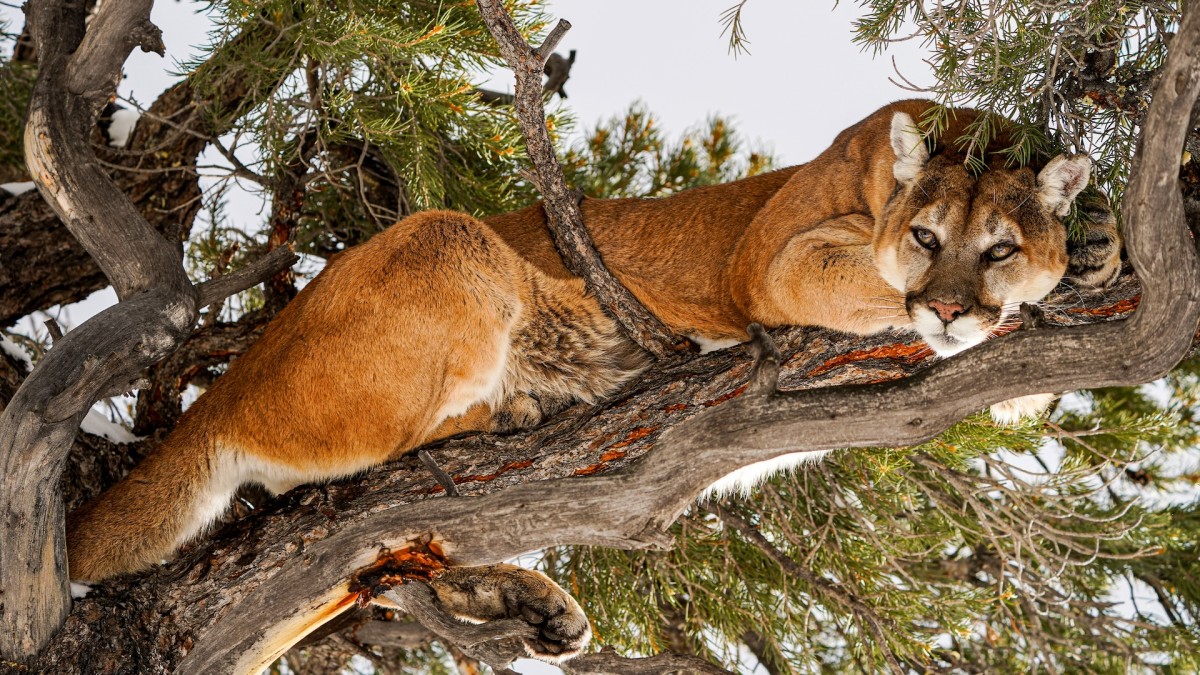Washington Wildlife Commission Descends into Open Infighting Over New Cougar Hunting Ruling

The most recent meeting of the Washington State Fish and Wildlife Commission descended into open infighting last week as five of the nine commissioners voted to begin a process that could restrict cougar hunting in the state.
The commission was considering a petition submitted last year by the Humane Society, the Center for Biological Diversity, the Mountain Lion Foundation, and Washington Wildlife First. The petitioners claim the current rules governing cougar hunting are based on “politics, not science,” and that hunters are killing cougars beyond what the population can sustain.
In response, the commission voted 5-4 to submit a proposal to the Fish and Wildlife Department that could significantly reduce cougar hunting opportunities in the state.
But the decision wasn’t without opposition, and not just from Washington State hunters. Kelly Susewind, the Director of the Washington Department of Fish and Wildlife, accused the commission of blatantly ignoring the opinions of state biologists.
“I’m just trying to get my head around this whole thing. I’m in a bit of disbelief, frankly,” he told the commission. “You’re trying to go your direction despite where the agency wants to go, and if we don’t say what you want to hear, you don’t want to hear from us. I just want to make it clear that that’s completely counter to what we’ve done in the past. Anybody who thinks this is a good process has a much different mindset than I do.”
Commissioner Jim Anderson put forward a motion to hold off on making new cougar hunting rules until a more thorough process could unfold. But the majority of the commission rejected that motion, opting instead to begin a rulemaking process that runs counter to what state biologists recommend.
“I can’t say how much I think that’s a backward approach. We’re directing without a fundamental knowledge, we’re directing based on biases,” Anderson said. “And that’s why my motion was to take the time, engage the staff… I think it’s a big mistake to go down this path.”
Perhaps the most pointed criticism came from Commissioner Molly Linville, who represents eastern Washington.
“I would implore us to ask ourselves, ‘Is this going to build trust with the public or this going to cause a firestorm we are about to step into?' ” She asked her fellow commissioners. “I believe this is going to cause a firestorm. For the first time, I’m going to really understand why the public doesn’t trust us. I just got completely disregarded when I shared that there are four of us who aren’t comfortable, and you just want to steamroll us, and you aren’t going to like the reaction from the public. I guarantee it. This is not good governance.”
Despite these concerns, Commissioners Melanie Rowland, Woody Meyers, Lorna Smith, Barbara Baker, and Tim Reagan voted for a proposal that would do the following:
- Count all independent-aged cougars (18+ months old) towards the total cougar mortality cap.
- Establish that the cougar hunting season begins September 1 and ends March 31.
- Determine the cap based on the best available estimates of cougar density and growth rate (currently, those parameters are estimated at 2.3 cougars per 100 square kilometers and 1.13 intrinsic growth).
- Count all human-related cougar mortality towards the total cougar mortality cap–including harvested cougars and cougars killed to resolve conflicts.
- Managers may close hunting in any population management unit (PMU) prior to the cap being reached upon consideration of factors such as disease, suspected additional mortality, or any other issue affecting cougar populations.
- In PMUs where combined cougar mortality meets or exceeds 20% of the population prior to September 1st, the season shall remain closed. Additionally, if opened, the season shall close automatically within 72 hours of that number being reached. (This provision will sunset at the end of the 2024 season.)
This proposal doesn’t finalize these provisions, but it does direct the Department of Fish and Wildlife to develop rules based on these directions. The commission will still have to vote on whatever rules the department puts forward, but if they adhere to these provisions, there’s no reason to believe these same five commissioners won’t vote for them again.
Washington state hunters are concerned about these proposed changes because they could significantly reduce their opportunities. Current regulations only count cougars over 24 months, but lowering that bar to 18 months means the quota will be reached more quickly (and thus close the unit to hunting). Counting conflict removals towards that quota will speed up that process even further.
“Nearly every commissioner recognized that it was conflict removal that caused more deaths (and concern) than hunting, but they instead chose to not address actions to reduce conflict kills,” Mandy Carlstrom told MeatEater. Carlstrom serves as communications lead for the Washington State chapter of Backcountry Hunters and Anglers. “Instead, once conflict is done killing cougars, whatever is left in the quota capacity is all hunters will be able to pursue.”
“Of course, conflict removal will continue happening after the quota closes for hunters when necessary. Which means they just reduced opportunity without ever reducing lethal take overall—it could actually increase,” she continued.
Commissioner Rowland, one of the commissioners who voted in favor of these changes, acknowledged that conflict removal is what’s driving “too many cougars being killed,” but still supported limiting hunting opportunities “because we can.”
“If we have too many cougars being killed and we see that conflict removals are where it’s increasing. I’m not blaming the hunters for too many cougars being killed but that’s the only thing we can really address for now. I think we do need to address the hunting removals because we can,” she said.
It’s unclear the extent to which hunters mitigate conflicts with cougars, but Bart George, a mountain lion researcher and the wildlife program manager for Kalispel Tribe Natural Resources Department in Washington State, told MeatEater that conflicts can be reduced with hounds.
“General hunting doesn’t do that much to reduce cougar conflicts,” he said. “But hunting with hounds and pursuing them likely has a bigger impact. If you look at western states that have active, hound hunting communities and pursuit seasons, they tend to have far fewer public safety issues and livestock and pet depredations.”
Washington State does have a mountain lion hunting season, unlike nearby California, but hunters are not permitted to use hounds.
Most human-lion conflicts involve pets, livestock, and property, but the big cats do sometimes attack people. Just this spring, a group of cyclists were attacked by a mountain lion in Washington State while two brothers were attacked and one killed by a mountain lion in California.
The Commission hopes to finalize these new rules before next year’s cougar hunting season, but there’s still time to weigh in. Concerned hunters can contact members of the Fish and Wildlife Commission here and submit public comments at an upcoming meeting.





Conversation